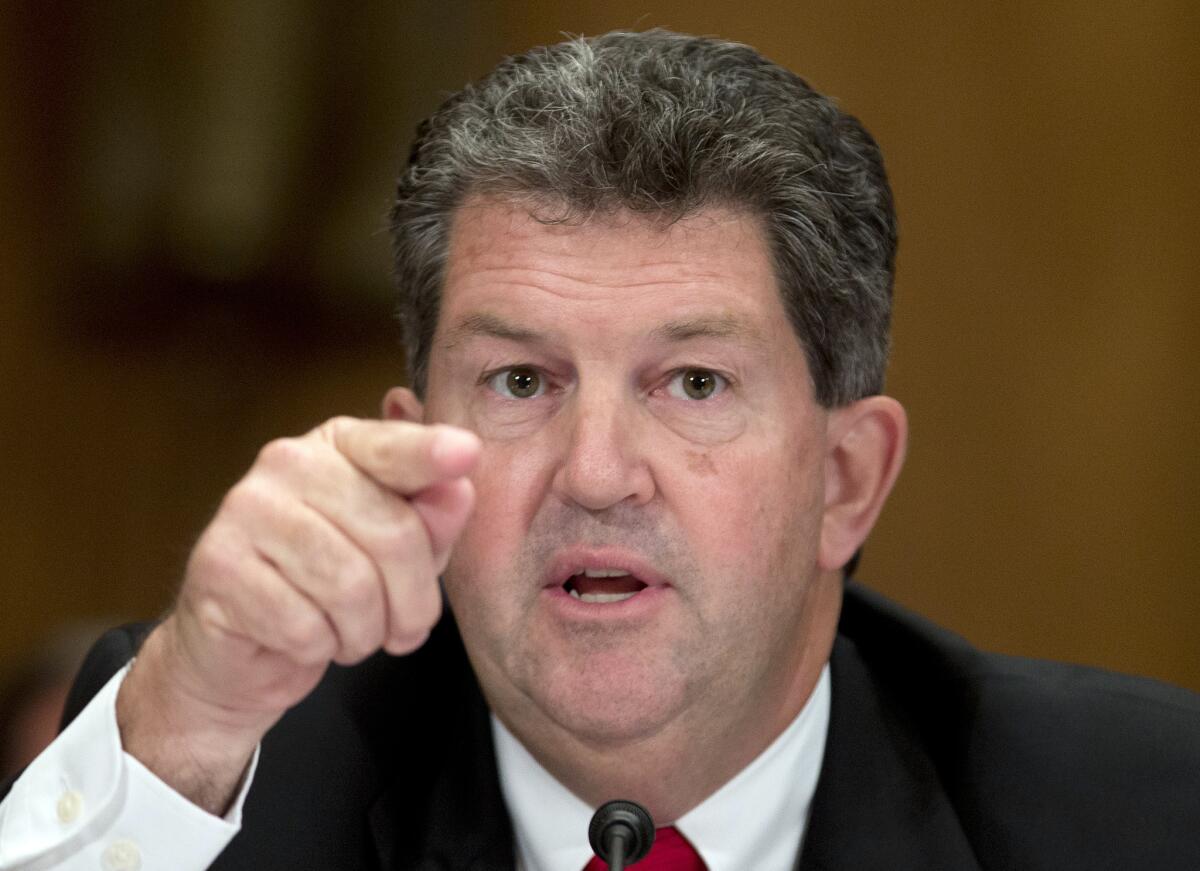Post office may need an urgent rate increase, Congress is told

It’s called snail mail because it’s slow compared with its electronic competitors – and electrons, unlike humans, work for free.
The U.S. Postal Service is in “the midst of a financial disaster” and may need an emergency increase in postage rates to keep operating, Postmaster General Patrick Donahoe warned Thursday.
The agency’s plight comes despite a 1-cent rate increase on first-class mail that took effect in January. A first-class stamp now costs 46 cents.
“The Postal Service as it exists today is financially unsustainable,” Donahoe told the Senate Homeland Security and Governmental Affairs Committee.
If that refrain sounds familiar, it is.
Postal officials have been complaining to Congress about the perilous state of their finances for months, noting that unless lawmakers ease the fiscal pain, a rate increase or a cut in services will be needed. The post office expects to lose $6 billion this year on top of the $16 billion it lost last year.
The Postal Service’s board of governors could decide as early as next week whether to request a special rate increase.
The independent agency’s problems have been well documented. Competitors like UPS have cut into its deliveries and the Internet has stolen away other business. Email and texting are faster and easier than sending first-class letters. Even bills -- routinely delivered and paid by mail a decade ago -- are often handled electronically today.
“We’ve lost 27% of our mail over the course of the last five to six years,” Donahoe said. “And when that happens, you have to make changes.”
Congress is considering cost-cutting moves that include an end to Saturday mail and door-to-door delivery. Postal workers oppose those changes, as do many lawmakers and some constituents.
A legal requirement that the Postal Service prepay its retiree healthcare costs is also draining its coffers. The agency missed two $5.6-billion payments last year and is expected to miss another one within weeks. It has asked lawmakers to relax that requirement.
ALSO:
Ex-Halliburton manager charged with deleting data in gulf spill probe
Footage of Aaron Alexis indicates indiscriminate Navy Yard shooting
Some good news in Colorado: Number of missing falls sharply
Follow L.A. Times National on Twitter
More to Read
Sign up for Essential California
The most important California stories and recommendations in your inbox every morning.
You may occasionally receive promotional content from the Los Angeles Times.











